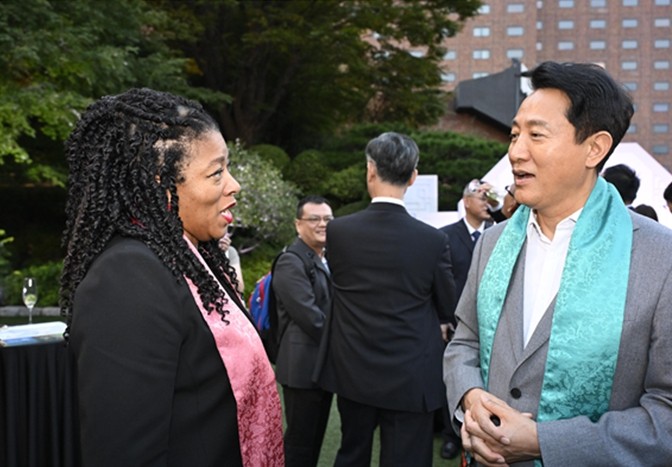The Seoul Metropolitan Government announced that the ‘2025 Metropolis Congress’ celebrating the 40th anniversary of the establishment of the World Association of Major Metropolises concluded successfully with delegations from 67 cities across 49 countries in attendance. The congress took place over three days from September 29 to October 1 at locations including the Dongdaemun Design Plaza (DDP).
The Metropolis, established in 1985 in Montreal, Canada, is an international city network aimed at addressing common issues faced by large cities, such as economic development and quality of life improvement. Currently, it has member cities from 65 countries, totaling 163 participating cities. Seoul joined the association in 1987 and was selected as a co-chair at the Brussels General Assembly in 2023, which led to hosting this year’s event.
This year’s event saw the participation of high-level delegations from major world cities such as New York, Tokyo, Tehran, Toronto, and Dublin, totaling 458 representatives including those from international organizations. Seizing the theme ‘Metropolitan Futures,’ Seoul shared policies such as basic income, Seoul Learn, Garden City Seoul, Integrity City, and responses to digital sex crimes. Key speeches were delivered by Hiroo Ichikawa, Executive Director of the Mori Memorial Foundation, and Slagjana Taseva, Dean of the International Anti-Corruption Academy (IACA).
Delegates took part in ‘Smart Life Week (SLW) 2025,’ experiencing Seoul’s smart city technologies and participating in policy tours including visits to traditional Korean houses, gardens, the Han River, and traditional markets. The tours also featured popular locations for K-pop and drama filming, drawing significant attention from participants.
Participants positively evaluated Seoul’s urban planning and cultural spaces. A representative from the Guangzhou Academy of Social Sciences commented on the impressive sight of Seoul citizens walking through gardens. The deputy mayor of Taipei noted the soulful human demand reflected in Seoul’s architectural spaces. Officials from São Paulo expressed interest in sharing Cheonggyecheon restoration experiences, while a delegation from Isfahan noted similarities with their country’s traditional villages during a Hanok village tour.
The city strengthened urban diplomacy by coordinating the congress with SLW-related events. Kim Tae-kyun, Deputy Mayor I for Administration, held discussions with deputy mayors of New York and Taipei, and the CEO of Dubai. Topics included mega-city crisis response and administrative transparency with New York, urban planning and regeneration cooperation with Taipei, and smart city policies and waste management cooperation with Dubai, congratulating Dubai’s FOODXD.AI project for its Smart City Gold Award achievement.
Kim Soo-duk, Director of Global City Policy, noted, “This congress significantly expanded compared to 2002 in terms of participating cities and delegation size, reaffirming Seoul’s stature.” He added, “Seoul will continue to strengthen its position as a global city through international collaboration.”
